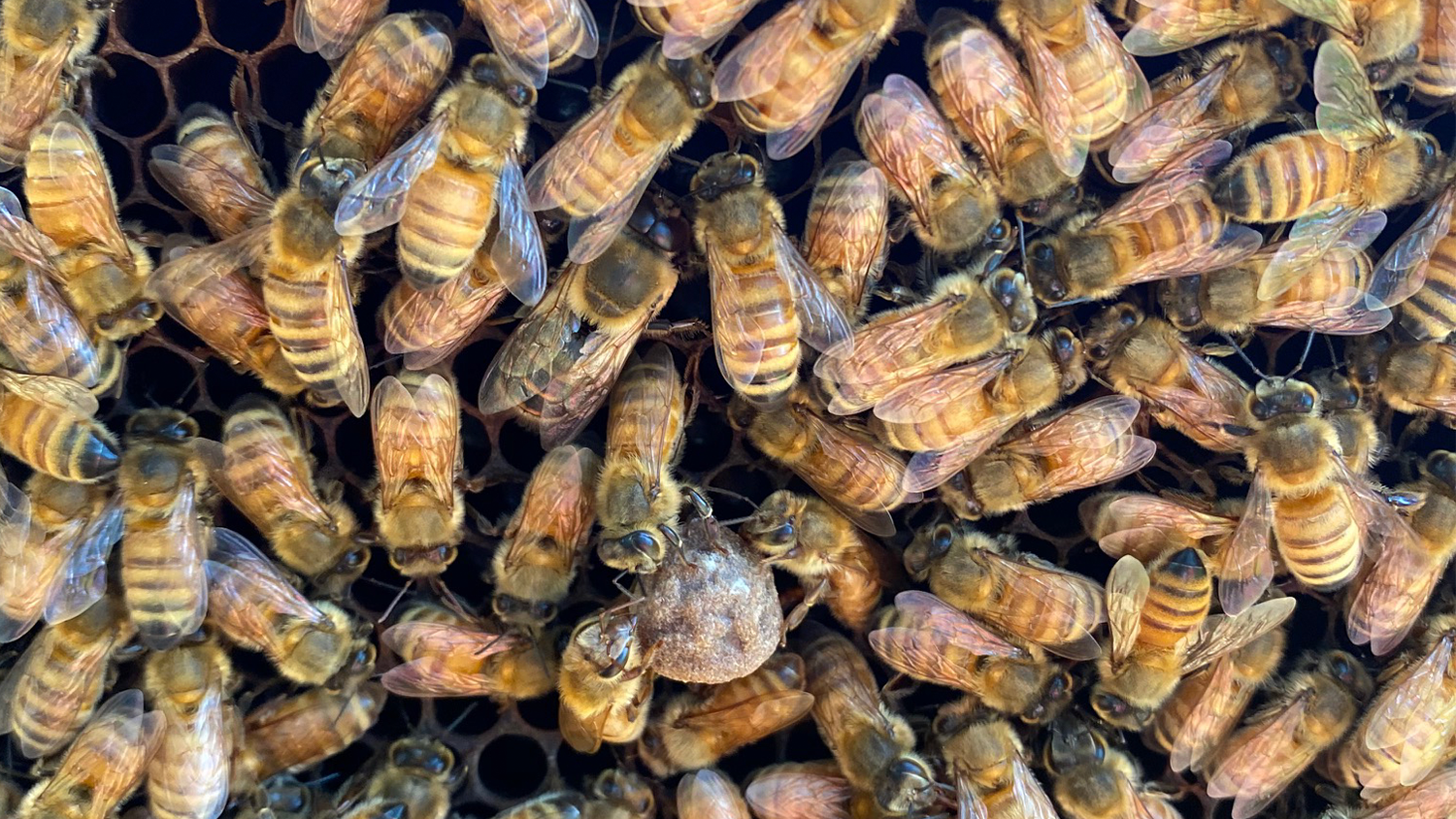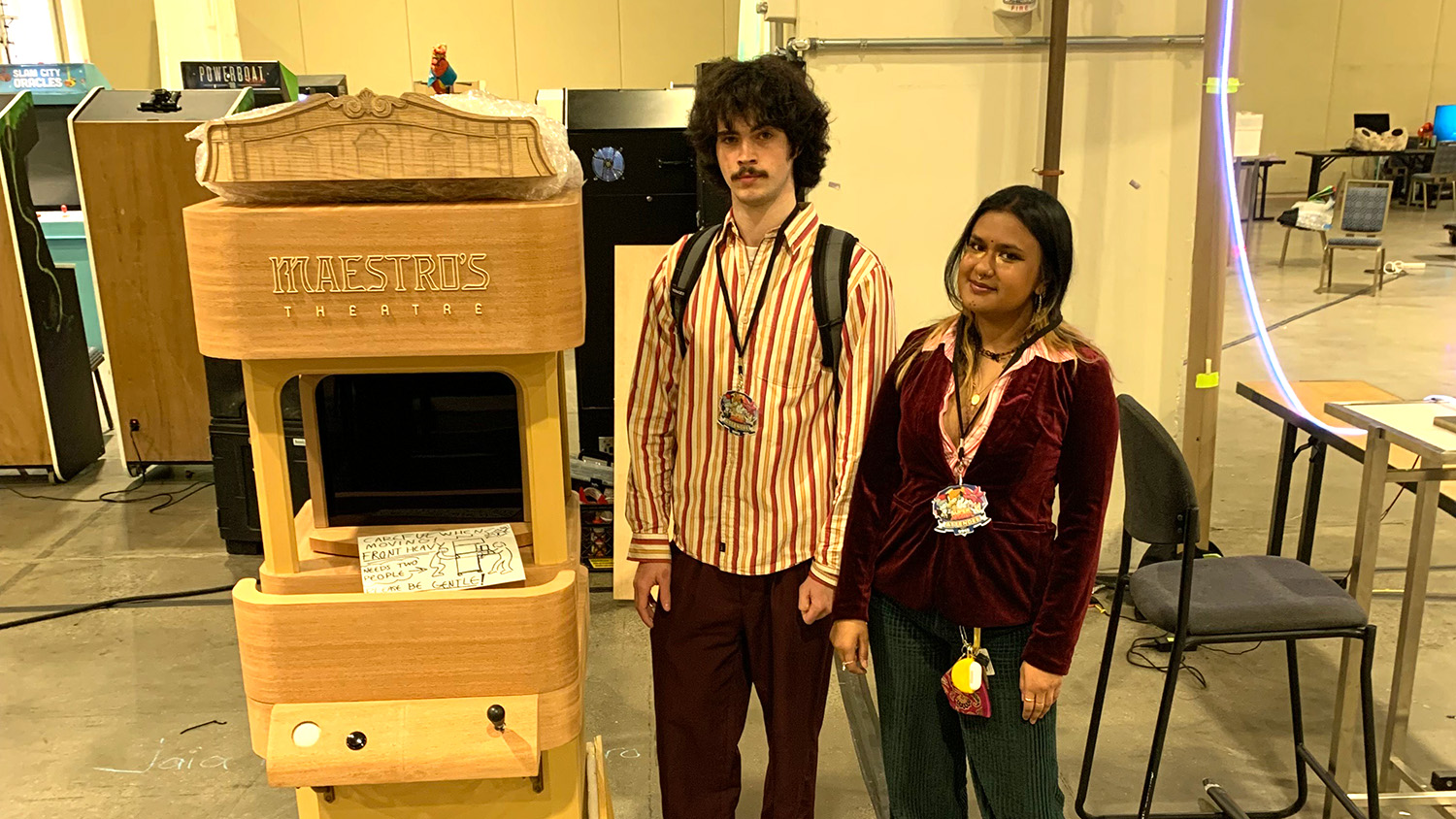Speeding Your Way Into Research: Courtney Smith Shares Her Journey in Undergraduate Research

By Marco Valencia
The Office of Undergraduate Research recently sat down (virtually) with Courtney Smith, a junior student studying Fisheries, Wildlife and Conservation Biology within the College of Natural Resources. Smith was actively looking for research opportunities when she connected with her mentor at one of OUR’s events: Speed Researching. Since then, she has worked on several projects with her mentor and others ranging from bees to violet seeds, focusing within the entomology field.
What pushed you to go to the Speed Researching event? What was your experience like?
The beginning of sophomore year is when I was starting to think about graduate school because I had a different mentor who mentioned that grad school is a great experience and that I should look into it to get a permanent job. That pushed me to get more research experience, but I really didn’t know where to start and learn about all the different opportunities. I previously had heard about the Speed Researching event but had never gone, so I decided to go around the beginning of my sophomore year.
While I was there, I visited the Applied Ecology table and spoke with Erin McKenney who told me about Elsa Youngsteadt’s lab, and that night I went ahead and emailed her letting her know I was interested. We ended up meeting, and I got a job at her lab.
Can you describe your research and what it entails?
I started in Dr. Youngsteadt’s lab spring semester of last year and at that time was working on a project focused on carpenter bees. I was crawling under benches around campus to look for carpenter bee nests and would take data on the sunlight each nest received, the length and height of the bench, and other important information that would help me find out which places carpenter bees preferred to nest in. I also did some research on violet seeds and the mutualism that exists between violet Seeds and ants. We were trying to learn more about their behavior in urban environments.
Over the summer I started research with a graduate student on bees. We tagged bees with tiny RFID [radiofrequency identification] tags and set up antennas on their colonies and hives to learn if there were any limitations between their home and the places we released. We released them over commercial and residential landscapes, forest areas, and highways. The goal was to see which of those areas they could traverse more easily or if they could even navigate those areas, so the antennas and tags somewhat logged if and when they got back [to their hives].
How has your mentor influenced and shaped your research experience, if at all?
My mentor has definitely helped because I had no clue how research worked or how graduate school operated, and she guided me through that process, so I have been able to learn more of what graduate school is, how to get into graduate school, when to apply, and what to look for. Also, all the projects I have done are hers, so she’s taken me in and let me help, which has developed [my] critical thinking skills. I think I have a scientific mindset and know how to ask the right questions because I have seen how she developed her research projects which has helped me think about my own projects in the future.
Would you recommend the Speed Researching event to other students and fellow researchers?
I would definitely recommend it! Even though it is not guaranteed to get you a mentor, it can help learn about the opportunities on campus and lead you in the right direction in finding a mentor. I also not only encourage going to the event but applying for research awards as well because that was a really cool experience!
- Categories:


